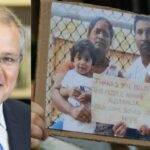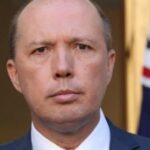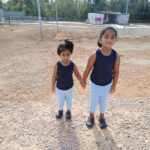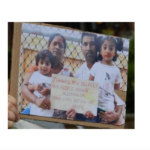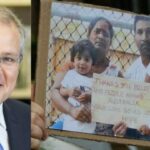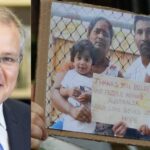Biloela Family: Political Pawns in the Upcoming Federal Election
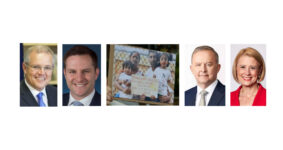
Australia’s poor treatment of a family fighting to stay in Australia has become a Federal election issue, as senior politicians within both major parties pledge to let them stay in the country.
Labor Leader Anthony Albanese has publicly criticised the Morrison Government’s poor treatment of the family of four, describing their detention as “publicly funded torture.”
Election promises
In the past week, Mr Albanese has reiterated Labor’s commitment to allow the family to return to Biloela in Central Queensland, where they had been welcomed, worked and contributed to the community before being forcibly removed during a dawn raid in 2019 and taken to a Victorian detention centre, then on to Christmas Island where they have remained since.
But it’s not just Labor giving the family a glimmer of hope: Deputy Prime Minister Barnaby Joyce responded to Mr Albanese by claiming he was “in negotiations” with party members with a view to returning the family to Biloela; although it seems these ‘talks’ have so far gone nowhere.
Immigration Minister
It has been well-publicised through high-profile cases including that of tennis ace Novak Djokovic that Immigration Minister, Alex Hawke, has the power to change the family’s future immediately. It is a course of action he has so far refused to take, despite loud and regular public pleas.
And perhaps it comes as no surprise that Mr Hawke’s predecessor, Peter Dutton, not only refused to exercise that discretion but launched a verbal tirade against the family in an appalling public display of arrogance and lack of compassion.
In many ways, the actions – or lack thereof – of both of these senior Morrison Government politicians makes it hard to believe Barnaby Joyce’s ‘talks’ will lead to the family’s return.
Political point scoring
The fact that the plight of the Biloela family has become a political hot potato being tossed around to win votes in the lead up to the Federal Election is exasperating to many; particularly for the many Australians who believe the family should never have been put through a dawn raid, years in detention, or a protracted legal battle over their residency status – costing Australian taxpayers tens of millions of dollars.
But, on a positive note, it also offers some hope for the family that whichever party wins the election this month, will actually stand by what they’re promising, and let them continue their lives in peace.
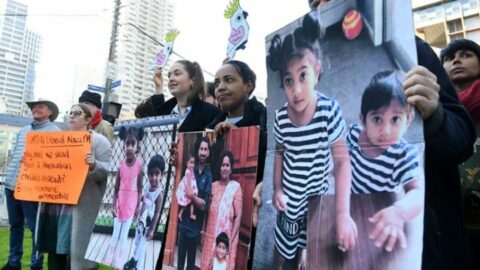
Four years in detention
It has been more than four years since the family was removed from their home in Biloela in Central Queensland by immigration officials in a gross display of the Morrison’s Government’s poor attitude towards refugees.
Priya and Nades, came to Australia separately by boat in 2012 and 2013 respectively after fleeing worn-torn Sri Lanka.
They are considered to be “irregular maritime arrivals” under the Migration Act, and were granted temporary protection visas, although under the legislation, people who arrive in Australia by boat cannot apply for a visa while in Australia.
They married, settled in Biloela and had two children, Kopika, born in 2015 and Tharnicaa, who was born in 2017. Priya’s visa expired three years later, and both her and her husband’s applications for refugee status were rejected by the government.
Then began the start of a long legal battle with the government over the “status” of their children. Despite both being born in Australia, the technicalities of the Migration Act meant that they were automatically given the status of their parents, rather than granted citizenship.
Australia’s shame
The legal battle, and fight to stay in a community where they have friends, and have made a life, has cost the family dearly – the children have spent most of their young lives in detention, although they were all allowed to settle in Perth (in community-based detention) last year after the youngest Tharnicaa became seriously ill with pneumonia and a blood infection.
Irrespective of this, their future still hangs in the balance. The Immigration Minister has both the power to send them back to Sri Lanka or let them return to Biloela – but the Morrison Government has delayed making a decision either way, preferring instead to battle the family in the courts.
The family’s battle with the Morrison Government has also cost Australian taxpayers millions – in detention and a legal battle, which is ongoing, and could potentially complicate any decision about the family’s future. Despite this, the family’s friends and neighbours in Biloela have never given up their fight to keep the family’s plight in the spotlight, so that it is not forgotten.
Many Australians just want to see the family returned to Bileoela too – but there is also a much greater issue here, relating to Australia’s migration policies as a whole.
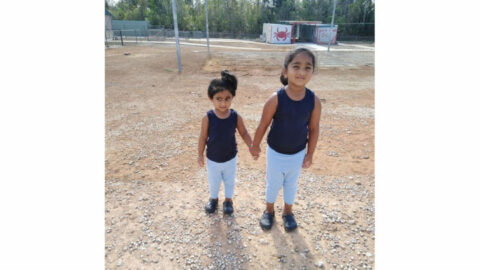
Traumatising asylum seekers
The family is, in many ways, the poster pin up for everything that’s undemocratic and discriminatory about Australia’s Migration Act, which has been amended considerably in the past several years.
The Migration Act has seen hundreds of people – New Zealander’s in particular – deported and unable to return – because they have been convicted of petty crimes.
It is the piece of legislation that keeps 1,459 people currently locked up in appalling conditions in immigration detention facilities in Australia, including more than 70 refugees and asylum seekers who were transferred to Australia from Nauru or Papua New Guinea for the purpose of medical treatment.
Earlier this year, statistics showed that the average length of detention has increased to 689 days, vastly longer than comparable countries like the United States and Canada, where the averages are 55 days and 14 days respectively. Eight people have now spent more than 10 years in Australian immigration detention, and 117 have been detained for longer than five years.
It is also the piece of legislation that gives the Immigration Minister sweeping, God-like powers to determine who enters Australia and who doesn’t. These were played out in front of a global stage in January when current Immigration Minister Alex Hawke single-handedly deported Tennis Player Novak Djokovic earlier this year, under controversial circumstances related to his Covid vaccination status.
Mr Djokovic had the means to retain lawyers to assist him with red tape and subsequent court battles. Most other refugees don’t have anywhere near the same resources – they’re at the mercy of complicated and uncompassionate laws, some of them for years on end.
Australia’s treatment of refugees has been heavily criticised by human rights activists time and time again. It has contributed significantly to Australia’s shameful reputation internationally, and lags behind contemporary attitudes in other countries which have much more respectful procedures which don’t deny people basic rights.
Main image (clockwise): Prime Minister Scott Morrison, Immigration Minister Alex Hawkes, Biloela family, Shadow Immigration Minister Kristina Keneally and Opposition Leader Anthony Albanese


